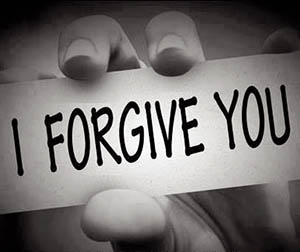
Part I
Over the years, I have come to realize that the ability to “forgive, even when one can’t forget” continues to be one of the greatest relational challenges we face. Once again, Torah wisdom predates current psychological theories in identifying the essential elements in this daunting task. There is a debate among the great sages and commentators of the past and present regarding the first time “forgiveness” appears in the Torah.
Some believe that the act of forgiveness is intimated when Hashem contemplates and then decides against destroying the world following the sin of Adam and Chava. Others consider the communication between Hashem and Kayin, following Kayin’s act of murder against his brother Hevel, as a more complete level of forgiveness, since it followed genuine remorse and repentance by the perpetrator. Yet, the belief that forgiveness was born the moment Adam named his wife “Chava—aim kol chai—the mother of all life,” resonates most strongly for me. In naming his wife Chava, he communicated his appreciation that her maternal role extended beyond the physical act of birth, to the creative role of nurturing a child from the point of “potential” to that of “actuation”; moreover, it was this hakarat hatov that empowered Adam to let go of the “blame” and “shame” he previously projected onto her. As we move on to the dramatic encounters of the two sets of brothers, Yaakov and Esav and Yosef and his siblings, the stories that are typically considered the Biblical paradigms of forgiveness, we will come across all of the essential elements of forgiveness, identified by current theories in the relational psychology; still, in both Biblical stories, as in the psychological theories, hakarat hatov—appreciation—continues to play a pivotal role.
I don’t remember a time in my life when I didn’t think about the mystery behind the challenge of forgiveness. As a young child, living in a neighborhood of Holocaust survivors, I would listen to the stories of arguments among shul members, families and friends, some turning into long-standing feuds, or “broigeses,” as they were called in the day. I wondered how those who lost so much already were so quick to relinquish the new and tentative bonds that developed in the post-war “refugee” communities. Perhaps it was these early memories that fueled my passion for finding the secret of forgiveness and the road to healing and strengthening the bonds of connectivity. Over the years, my personal and clinical experience, as well as my research, has certainly helped me in achieving this goal; but, once again, it is my Torah studies that continue to offer the guidance I need in pursuing this personal mission.
Rabbi Efrem Goldberg, in his weekly shiur on emunah, notes a connection between the miracle of Chanukah and the story of Yosef and his brothers: the common theme of “mindfulness.”
Mindfulness is a popularized psychological term, referring to the preferred state of “active, open attention to the present.” Thus, when one is mindful, one is fully “awakened” to the experience at hand, and it is this experience that drives one’s thoughts and actions. Indeed, Yosef was ever mindful of Hashem, as his Creator, and considered all that he was and all that he possessed a miracle wrought by God. Through all of his challenges, he sustained full trust in God’s mission; as a result, he was easily able to forgive his brothers, knowing that the greater good that resulted for his family, his nation and the world at large hinged on the part he played in that mission. Judgment of his brothers was left to God. As the story unfolds, wherever we find Yosef, whether in the caravan on the way to Egypt, in the house of Potiphar, in the prison or in the palace, he accepted each phase as part of the plan; moreover, when his masters, first Potiphar and later Pharaoh, enjoyed the good fortune resulting from his efforts, Yosef always credited God.
Rabbi Goldberg finds this same theme of mindfulness in the Chanukah story. He references the well-known question regarding why the burning of the oil in the menorah, on the first night, something that was expected, is considered part of the miracle of Chanukah. There are many responses to this question and Rabbi Goldberg focuses on one that is consistent with the lesson of mindfulness in the stories of Yosef. Viewed from this perspective, even though it was taken for granted that the oil would burn in the menorah on the first night, it was still considered no less a miracle than the fact that it unexpectedly continued to burn on the remaining seven days. Indeed, it was Yosef who taught us that nothing in life is less than a miracle, a gift from God, and never to be taken for granted. I believe that it was this heightened level of appreciation and connection with God that did not allow negativity to enter Yosef’s mindset and that empowered him to forgive his brothers. Let us enjoy this first spiritual gift of hakarat hatov, the foundational step in our journey of forgiving even when we can’t forget.
Renee Nussbaum is a practicing psychoanalyst, with special training in Imago Relational Therapy. She can be reached at: doctorrenee nussbaum @gmail.com.
By Renee Nussbaum










